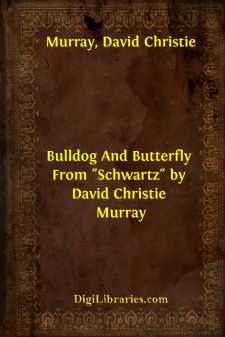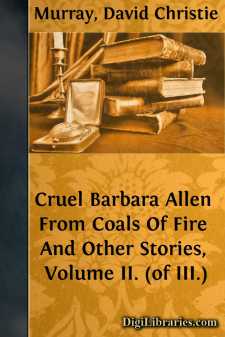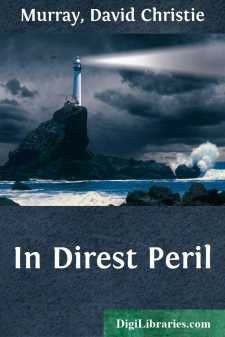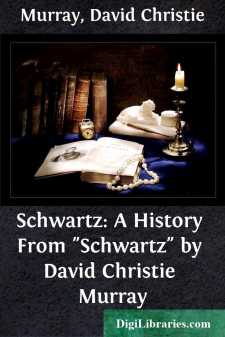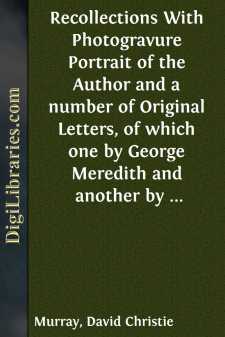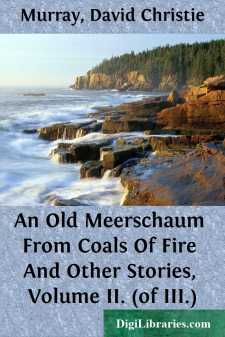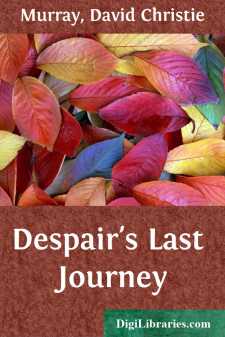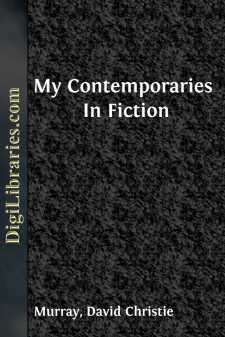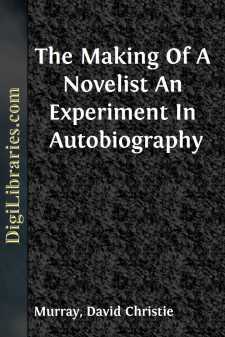Categories
- Antiques & Collectibles 13
- Architecture 36
- Art 48
- Bibles 22
- Biography & Autobiography 813
- Body, Mind & Spirit 142
- Business & Economics 28
- Children's Books 17
- Children's Fiction 14
- Computers 4
- Cooking 94
- Crafts & Hobbies 4
- Drama 346
- Education 46
- Family & Relationships 57
- Fiction 11829
- Games 19
- Gardening 17
- Health & Fitness 34
- History 1377
- House & Home 1
- Humor 147
- Juvenile Fiction 1873
- Juvenile Nonfiction 202
- Language Arts & Disciplines 88
- Law 16
- Literary Collections 686
- Literary Criticism 179
- Mathematics 13
- Medical 41
- Music 40
- Nature 179
- Non-Classifiable 1768
- Performing Arts 7
- Periodicals 1453
- Philosophy 64
- Photography 2
- Poetry 896
- Political Science 203
- Psychology 42
- Reference 154
- Religion 513
- Science 126
- Self-Help 84
- Social Science 81
- Sports & Recreation 34
- Study Aids 3
- Technology & Engineering 59
- Transportation 23
- Travel 463
- True Crime 29
David Christie Murray
David Christie Murray (1847-1907) was a notable English novelist and journalist, acclaimed for his engaging and insightful novels which often explored themes of social issues and human nature. He gained popularity with works like "A Life's Atonement" and "Joseph's Coat," which were well-received for their narrative style and character development. Murray's career also included significant contributions to journalism, reflecting his deep interest in societal matters and human behavior.
Author's Books:
Sort by:
Castle Barfield, Heydon Hey, and Beacon Hargate form the three points of a triangle. Barfield is a parish of some pretensions; Heydon Hey is a village; Beacon Hargate is no more than a hamlet. There is not much that is picturesque in Beacon Hargate, or its neighbourhood. The Beacon Hill itself is as little like a hill as it well can be, and acquires what prominence it has by virtue of the extreme...
more...
CHAPTER I. Christopher was a fiddler and a man of genius. Educated people do not deny the possibility of such a combination; but it was Christopher's misfortune to live amongst a dull and bovine-seeming race, who had little sympathy with art and no knowledge of an artist's longings. They contented themselves, for the most part, with the belief that Christopher was queer. Perhaps he was. My...
more...
I have told my wife quite plainly that in my opinion I am as little fitted by nature for the task she has laid upon my shoulders as any man alive. I have spent a great part of my life in action; and though the later part of it has been quieter and more peaceful than the earlier, and though I have enjoyed opportunities of study which I never had before, I am still anything but a bookish man, and I am...
more...
I was expatriated by a man with an axe. The man and the axe were alike visionary and unreal, though it needed a very considerable effort of the will to hold them at mental arm's length. I had work on hand which imperatively demanded to be finished, and I was so broken down by a long course of labour that it was a matter of actual difficulty with me when I sat down at my desk of a morning to lay...
more...
CHAPTER I The Unlucky Day of the Fool's Month—High Street, WestBromwich—My First Pedestrian Triumph—The Common EnglishBracken—The Sense of Beauty. I remember that in a fit of petulance at some childish misdemeanour, my mother once told me that I came into the world on the unlucky day of the fool's month. It was her picturesque way of saying that I was born on the thirteenth of April....
more...
Mr Bommaney was a British merchant of the highest rectitude and the most spotless reputation. He traded still under the name of Bommaney, Waite, and Co., though Waite had been long since dead, and the Company had gone out of existence in his father's time. The old offices, cramped and inconvenient, in which the firm had begun life eighty years before, were still good enough for Mr. Bommaney, and...
more...
The market-place at Trieste lay in a blaze of colour under the June sunlight. The scent of fruits and flowers was heavy on the air. A faint-hearted breeze which scarcely dared to blow came up from the harbour now and again, and made the heat just bearable. Mr. William Holmes Barndale, of Barndale in the county of Surrey, and King's Bench Walk-, Temple, sat in shadow in front of a restaurant with...
more...
A solitary passenger alighted from the train, and many people looked curiously after him. The mulatto porter handed to the platform a well-battered portmanteau, which was plastered thickly over with luggage-labels and the advertising tickets of hotels in every quarter of the globe. A great canvas bag followed, ornamented in like fashion. Then from the baggage-van an invisible person tumbled, a canvas...
more...
I.—FIRST, THE CRITICS, AND THEN A WORD ON DICKENS The critics of to-day are suffering from a sort of epidemic of kindness. They have accustomed themselves to the administration of praise in unmeasured doses. They are not, taking them in the mass, critics any longer, but merely professional admirers. They have ceased to be useful to the public, and are becoming dangerous to the interests of letters....
more...
PREFACE Every man who writes about himself is, on the face of the matter, obnoxious to the suspicion which haunts the daily pathway of the Bore. To talk of self and not be offensive demands an art which is not always given to man. And yet we are always longing to get near each other and to understand each other; and in default of a closer communion with our living fellows we take to our bosoms the...
more...


